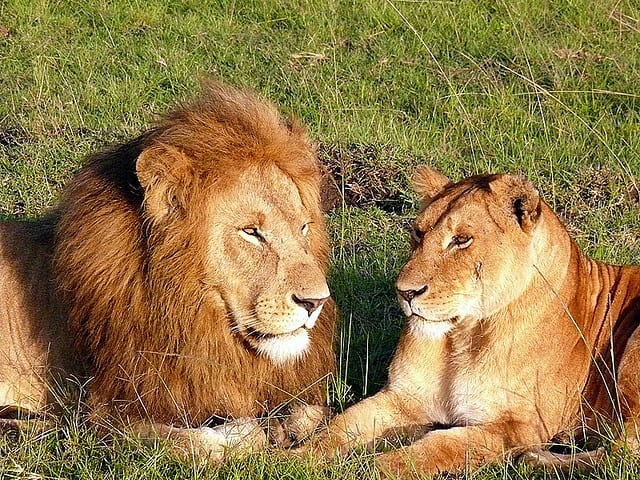American Hunters: Necessary to Save African Lions
OutdoorHub Reporters 03.20.13

A recent article in the New York Times has drawn attention to the plight of the lion population in Tanzania, and the part that American hunters have in saving the species. The article, penned by Tanzanian Wildlife Director Alexander N. Songorwa, is paradoxically titled “Saving Lions by Killing Them.” Songorwa states that while the lion population in his country is not endangered (according to him, Tanzania has roughly 40 percent of all lions in Africa and the biggest concentration in the world), a loss of American hunters would be devastating to conservation efforts.
Why would American hunters leave the country? Is there something in the water? No, it is rather a petition by five animal rights groups that are pushing for the United States Fish and Wildlife Service to list the African lion as endangered. This move would make it illegal for American hunters to transport trophies home. Americans comprise nearly 60% of the African nation’s trophy hunters.
Opponents of lion hunting say that far too many lions are being shot for sport. Songorwa argues that Tanzania has very strict regulations that forbid the shooting of females and males under the age of six. Additional measures are taken up to crack down on poachers and illegal activity. Dr. Luke Hunter, executive vice president of the wild cat conservation group Panthera also believes that lion hunting is necessary for conservation. Although Dr. Hunter is not a lion hunter and does not wish to endorse lion hunting, he recognizes that sportsmen contribute significantly to protecting the magnificent animals.
Hunter writes, “If American hunters, by far the largest market for big game safaris in Africa, can no longer hunt, lions and other wildlife will probably lose out.”
Statistics gathered by Safari Club International, an advocacy group for hunters and wildlife conservation, show that sport hunting in Tanzania employs 3,700 people annually and supports 88,000 families. Over $30 million is generated from hunting each year, with at least 25 percent of government retained revenue going back into wildlife protection. Other uses for the funds are local development and habitat conservation. Hunter sponsored programs such as SCI’s SafariCare Program also bring much needed medical supplies to those in need.
In an interview with Outdoor Hub, SCI Foundation’s Director of Science-Based Conservation Programs Melissa Simpson further argued that “the management of African lions should be left to Africans, not bureaucrats in Washington, D.C. […] The people and communities in Africa have the greatest incentive to manage their wildlife sustainably; and hunters, particularly American hunters, supply the necessary finances to support anti-poaching and conservation work needed throughout the continent.” She added, “Our organization and all of our colleagues are asking the U.S. government to incentivize conservation funding in Africa rather than inhibit that success that could be achieved by Tanzania.”
All of this is under threat if American hunters abruptly leave the country. Songorwa emphasizes that if hunters head elsewhere, an incredible strain will be laid on the nation’s economy–with wildlife protection programs among the first to be affected. Programs that target poachers and illegal hunting as well as employing wardens will also be diminished.
“As Tanzania’s highest-ranking wildlife official, I ask on behalf of my country and all of our wildlife: do not list the African lion as endangered,” wrote Songorwa. “Instead, help us make the most from the revenues we generate. Help us make trophy hunting more sustainable and more valuable. In short, please work with us to conserve wildlife, rather than against us, which only diminishes our capacity to protect Tanzania’s global treasures.”

